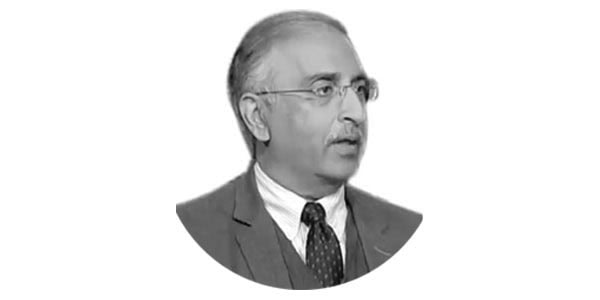Bad politics, bad economics
Our politicians are not prepared to democratically compete against each other-they would rather ‘destroy’ each other; ‘eliminate’ each other.
There are two extremely consequential battles going on right now: a battle of narratives between PTI and PTI’s political opponents plus a serious internal struggle to grab the right to appoint the next chief of army staff.
For the record, half a dozen lieutenant generals will be retiring in September and the chief of army staff will be retiring in November.
Imagine, so many battles going on in the midst of an unprecedented economic meltdown. Imran Khan is bent upon delegitimizing each and every state institution-including the establishment, the Supreme Court of Pakistan and the Election Commission of Pakistan.
Imran Khan is bent upon undermining the administrative capacity of the state-and then dreaming of taking over the political control of the state.
Bad politics always results in bad economics. There’s a bloodbath going on at the Pakistan Stock Exchange where the capitalization has dropped by Rs1 trillion.
The Pakistani rupee has lost Rs20 against the dollar over the past 6 weeks. PTI has left behind a Rs5 trillion budgetary deficit, the highest ever in our 75 year economic history.
PTI is leaving behind a $45 billion trade deficit, the highest ever in our 75 year economic history.
PTI has left behind subsidies on petrol and diesel amounting to Rs1,400 billion, a hundred billion higher than our annual defense budget.
PTI has left behind a State Bank of Pakistan with a mere $10 billion in foreign exchange reserves barely enough to cover 4 weeks of imports.
Imagine, so many political battles raging on. Imagine, an unprecedented economic meltdown. Now imagine a confused establishment. To be certain, a catastrophe in the waiting.
A catastrophe totally of our own making. If the National Assembly is dissolved Pakistan will-most probably-default.
If the PDM-government goes home Pakistan will-most probably-default. Imagine, so many political battles raging on. Imagine, an unprecedented economic meltdown.
Imagine a confused establishment. Now imagine Pakistan going through an external geopolitical realignment. We can live neither with the IMF nor without the IMF.
We need the IMF’s dollars plus the IMF’s monitoring program which opens up billions of dollars from Saudi Arabia, China, the World Bank and others. The IMF, as a matter of principle, does not deal with interim governments.
So if there is an interim government, Pakistan will-most probably-default. We must avoid default-at all costs.
Default means shortage of diesel, petrol, life saving drugs, cooking oil, load-shedding, a crash of the Pakistani rupee and the stock exchange.
Default means social unrest followed by violent protests-and deployment of troops. We must avoid this vicious cycle-at all costs. Long marches, political protests and riots all have definite economic consequences.
An authoritative study on ‘The economics of social unrest’ states: “On average, major unrest events are followed by a 1 percentage point reduction in GDP six quarters after the event.
” For Pakistan, every long march costs around Rs740 billion or an equivalent of $3.7 billion.We must avoid default-at all costs.
Bad politics and good economics cannot coexist. Bad politics always results in bad economics.
“Politics is the most concentrated expression of economics,” said Vladmimir Lenin, the Russian politician and revolutionary.










